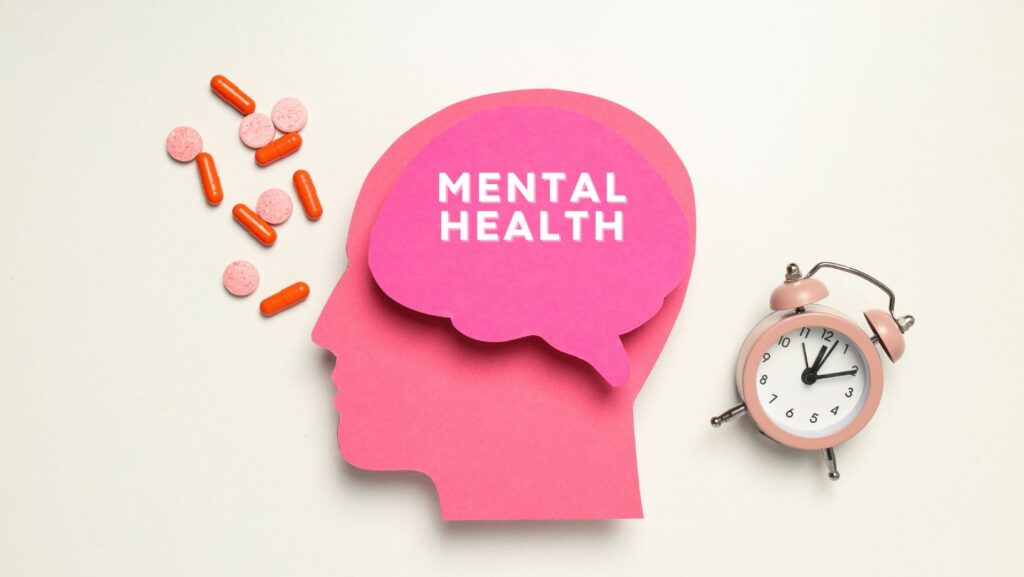Key Takeaways
- Definition of SMI: Serious Mental Illness (SMI) encompasses severe mental health disorders that greatly hinder daily functioning, including schizophrenia, bipolar disorder, and major depressive disorder.
- Impact on Individuals: SMI profoundly affects a person’s quality of life, leading to challenges in maintaining relationships, self-care, and employment due to persistent symptoms and stigma.
- Symptoms to Recognize: Common indicators of SMI include cognitive impairment, emotional distress, interpersonal difficulties, and self-care challenges that can escalate without intervention.
- Effective Treatment: Comprehensive management of SMI typically involves psychotherapy (like Cognitive Behavioral Therapy), medication, and community support services tailored to individual needs.
- Reducing Stigma: Increasing awareness and understanding of SMI is key to fostering open discussions, which helps combat the stigma associated with mental health and encourages individuals to seek help.
- Societal Implications: Addressing SMI not only improves individual outcomes but also alleviates societal burdens, including healthcare costs and lost productivity, benefiting public health at large.
Serious Mental Illness (SMI) refers to a group of mental health disorders that significantly disrupt an individual’s daily functioning. These conditions, which include schizophrenia, bipolar disorder, and severe depression, can lead to profound challenges in relationships, work, and overall quality of life. Understanding SMI is crucial for recognizing the complexities of mental health and the importance of effective treatment.
As mental health awareness grows, the conversation around SMI becomes increasingly vital. Many individuals and families are affected, yet stigma often prevents open discussion. By exploring what SMI entails, its symptoms, and available support, society can foster a more compassionate approach to mental health care. This article aims to shed light on SMI, offering insights that can empower those impacted and encourage a more informed dialogue.
What Is SMI in Mental Health
 Serious Mental Illness (SMI) refers to severe mental health conditions that disrupt daily functioning. Conditions classified as SMI include:
Serious Mental Illness (SMI) refers to severe mental health conditions that disrupt daily functioning. Conditions classified as SMI include:
- Schizophrenia: Characterized by delusions, hallucinations, and disorganized thinking.
- Bipolar Disorder: Involves extreme mood swings, including manic and depressive episodes.
- Major Depressive Disorder: Exhibits persistent sadness, loss of interest, and functional impairment.
SMI significantly impacts an individual’s ability to manage daily tasks, maintain relationships, and hold employment. Understanding SMI involves recognizing its symptoms, which often vary in duration and intensity. Common symptoms include:
- Impaired cognitive function
- Inability to maintain relationships
- Difficulty managing self-care
Addressing SMI requires effective treatment options, which may include:
- Psychotherapy: Such as Cognitive Behavioral Therapy (CBT) to manage thoughts and behaviors.
- Medication: Antipsychotic and mood-stabilizing medications help alleviate symptoms.
- Support Services: Community support, such as group therapy and crisis intervention.
Raising awareness about SMI contributes to reducing stigma surrounding mental health disorders. Promoting open discussions allows individuals to seek help and access available resources. Understanding SMI leads to a more informed approach to mental health care, fostering compassion and empathy for those affected.
Importance of SMI
Understanding the importance of Serious Mental Illness (SMI) reveals its profound effects on both individuals and society. Addressing SMI effectively can lead to improved outcomes for those affected.
Impact on Individuals
 SMI significantly alters an individual’s quality of life. Individuals facing SMI often experience persistent symptoms, including severe mood swings and cognitive impairments, affecting their ability to work or engage socially. Daily activities, such as personal hygiene and meal preparation, become challenging. Emotional distress and stigma further exacerbate the isolation many individuals face, hindering their willingness to seek help. Early intervention and comprehensive treatment improve prognosis, enabling individuals to manage their symptoms more effectively and reclaim control over their lives.
SMI significantly alters an individual’s quality of life. Individuals facing SMI often experience persistent symptoms, including severe mood swings and cognitive impairments, affecting their ability to work or engage socially. Daily activities, such as personal hygiene and meal preparation, become challenging. Emotional distress and stigma further exacerbate the isolation many individuals face, hindering their willingness to seek help. Early intervention and comprehensive treatment improve prognosis, enabling individuals to manage their symptoms more effectively and reclaim control over their lives.
Society bears the burden of SMI through increased healthcare costs and lost productivity. According to the National Alliance on Mental Illness, SMI costs the U.S. economy approximately $193 billion annually due to lost earnings. Additionally, individuals with SMI often rely on public resources for care, straining healthcare systems. When communities address SMI through education and support initiatives, they foster inclusivity and reduce stigma. The societal understanding of mental health encourages supportive environments where individuals can thrive, ultimately benefiting overall public health.
Key Characteristics of SMI
Serious Mental Illness encompasses a range of disorders that profoundly affect an individual’s mental health and daily functioning. Understanding these characteristics aids in identifying and addressing SMI effectively.
Common Disorders Classified as SMI
Common disorders classified as Serious Mental Illness include:
- Schizophrenia: Characterized by hallucinations, delusions, and impaired thinking.
- Bipolar Disorder: Involves extreme mood swings from mania to depression.
- Major Depressive Disorder: Presents with persistent sadness, loss of interest, and fatigue.
- Obsessive-Compulsive Disorder (OCD): Features intrusive thoughts and compulsions that disrupt daily life.
- Post-Traumatic Stress Disorder (PTSD): Results from experiencing or witnessing traumatic events, leading to anxiety and flashbacks.
Symptoms and Challenges
Symptoms of SMI significantly impact daily functioning and quality of life, including:
- Cognitive Impairment: Difficulty with attention, memory, and decision-making affects personal and professional life.
- Emotional Distress: Persistent sadness, anxiety, or mood fluctuations can lead to withdrawal and isolation.
- Interpersonal Difficulties: Strained relationships result from the inability to connect or communicate effectively.
- Self-Care Challenges: Neglect of personal hygiene, nutrition, and overall health contributes to further decline.
- Stigmatization: Societal stigma surrounding mental illness often leads to discrimination and exclusion.
Addressing these symptoms and challenges is vital for improving outcomes and supporting individuals affected by SMI.
Treatment Approaches
Effective treatment for Serious Mental Illness (SMI) involves a combination of psychotherapy, medication, and community support services, tailored to individual needs.
Psychotherapy
Psychotherapy plays a crucial role in treating SMI. Cognitive Behavioral Therapy (CBT) is frequently utilized, focusing on changing negative thought patterns to improve emotional regulation. Dialectical Behavior Therapy (DBT) is another effective approach, particularly for individuals with borderline personality disorder. Evidence shows that regular therapy sessions can lead to symptom reduction and improved coping strategies. Group therapy also provides a supportive environment, allowing individuals to share experiences and foster social connections.
Medication
Medication often complements psychotherapy in managing SMI. Antipsychotics, such as risperidone and olanzapine, are commonly prescribed to address symptoms like hallucinations and delusions. Mood stabilizers, like lithium and lamotrigine, help regulate mood fluctuations in conditions like bipolar disorder. Antidepressants, including selective serotonin reuptake inhibitors (SSRIs), assist in managing debilitating depressive symptoms. Regular monitoring and adjustments by healthcare professionals ensure optimal medication effectiveness and minimize side effects.
Impact on Society
Understanding Serious Mental Illness is essential for fostering a compassionate approach to mental health care. By recognizing the complexities and challenges that individuals face, society can work towards reducing stigma and encouraging open conversations.
Effective treatment options are available and can lead to improved quality of life for those affected. Community support and education play vital roles in creating inclusive environments that empower individuals to seek help.
Ultimately, addressing SMI not only benefits individuals but also enhances societal well-being, paving the way for a more empathetic understanding of mental health challenges.

